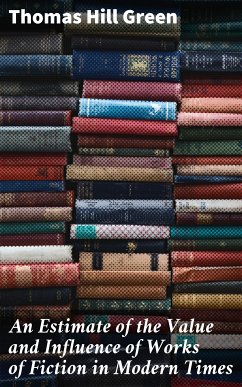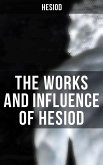In "An Estimate of the Value and Influence of Works of Fiction in Modern Times," Thomas Hill Green critically examines the role of fiction within the socio-political landscape of the late 19th century. Employing a philosophical lens, Green articulates the moral significance of literature, arguing that fiction serves as a profound medium for moral education and cultural critique. His articulate prose harmonizes both philosophical rigor and a deep appreciation for narrative art, situating his work within the Victorian discourse on aesthetics and ethics in literature. Green's inquiry not only interrogates the psychological effects of fiction but also challenges the burgeoning Realist movement by emphasizing the idealism inherent in imaginative literature. Green, a prominent British philosopher and educator, was influenced by the evolving intellectual currents of his time, including German Idealism and British Utilitarianism. His convictions about the value of education and moral responsibility shaped his perspectives, ultimately driving him to explore the transformative power of fiction. Green's position as a leading figure in the Oxford Movement further underscores his commitment to entwining philosophy with practical moral considerations, making a compelling case for the importance of literature as a reflection of human experience. This book is a must-read for scholars and enthusiasts alike, offering invaluable insights into the interplay between fiction and moral philosophy. Readers seeking a deeper understanding of how novels and stories serve as conduits for ethical reflection and social critique will find Green's analysis both enlightening and provocative. Dive into this rich, thought-provoking work that challenges contemporary assumptions about the relevance of literature in shaping human character and society.
Dieser Download kann aus rechtlichen Gründen nur mit Rechnungsadresse in A, B, BG, CY, CZ, D, DK, EW, E, FIN, F, GR, H, IRL, I, LT, L, LR, M, NL, PL, P, R, S, SLO, SK ausgeliefert werden.









